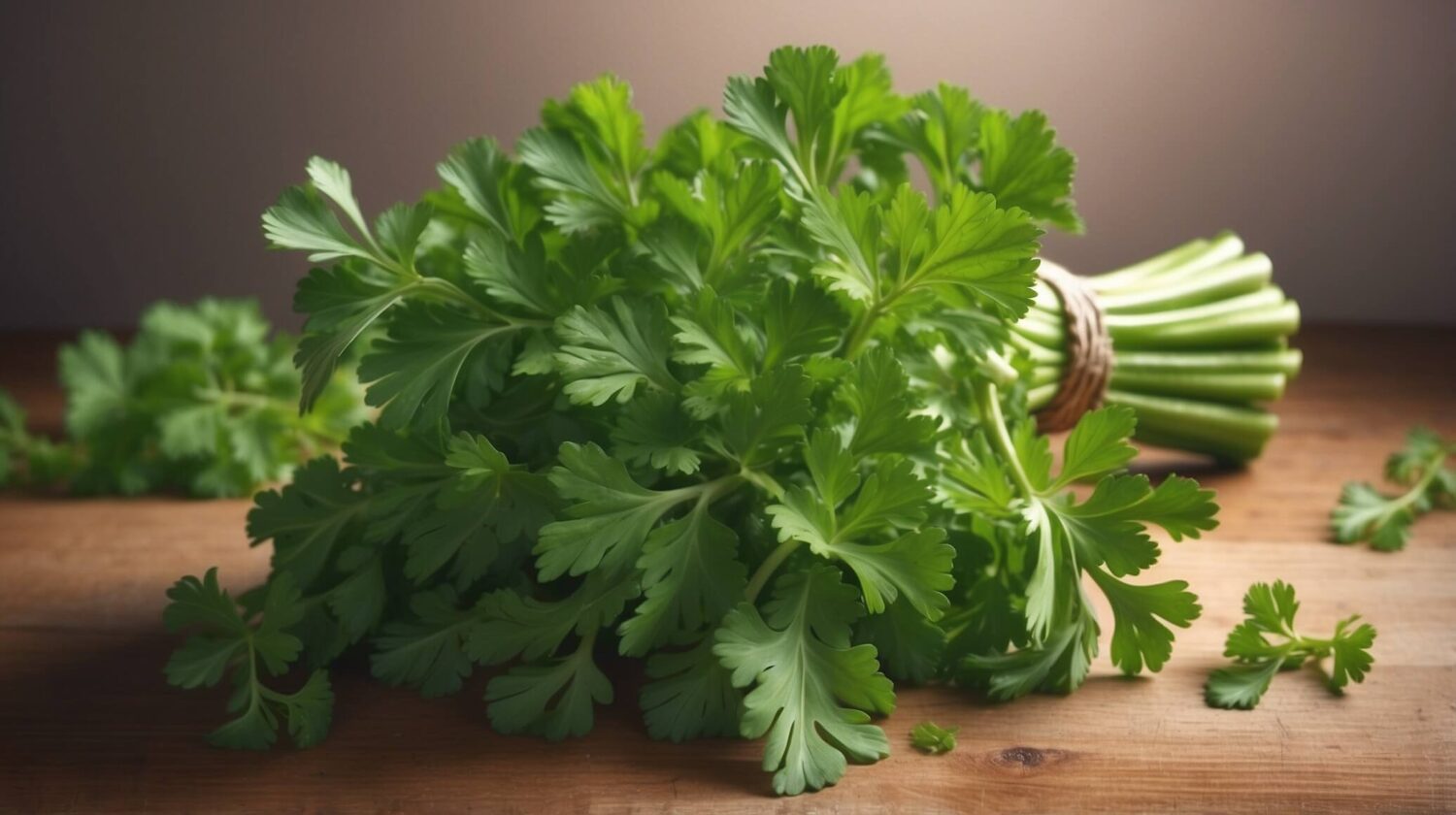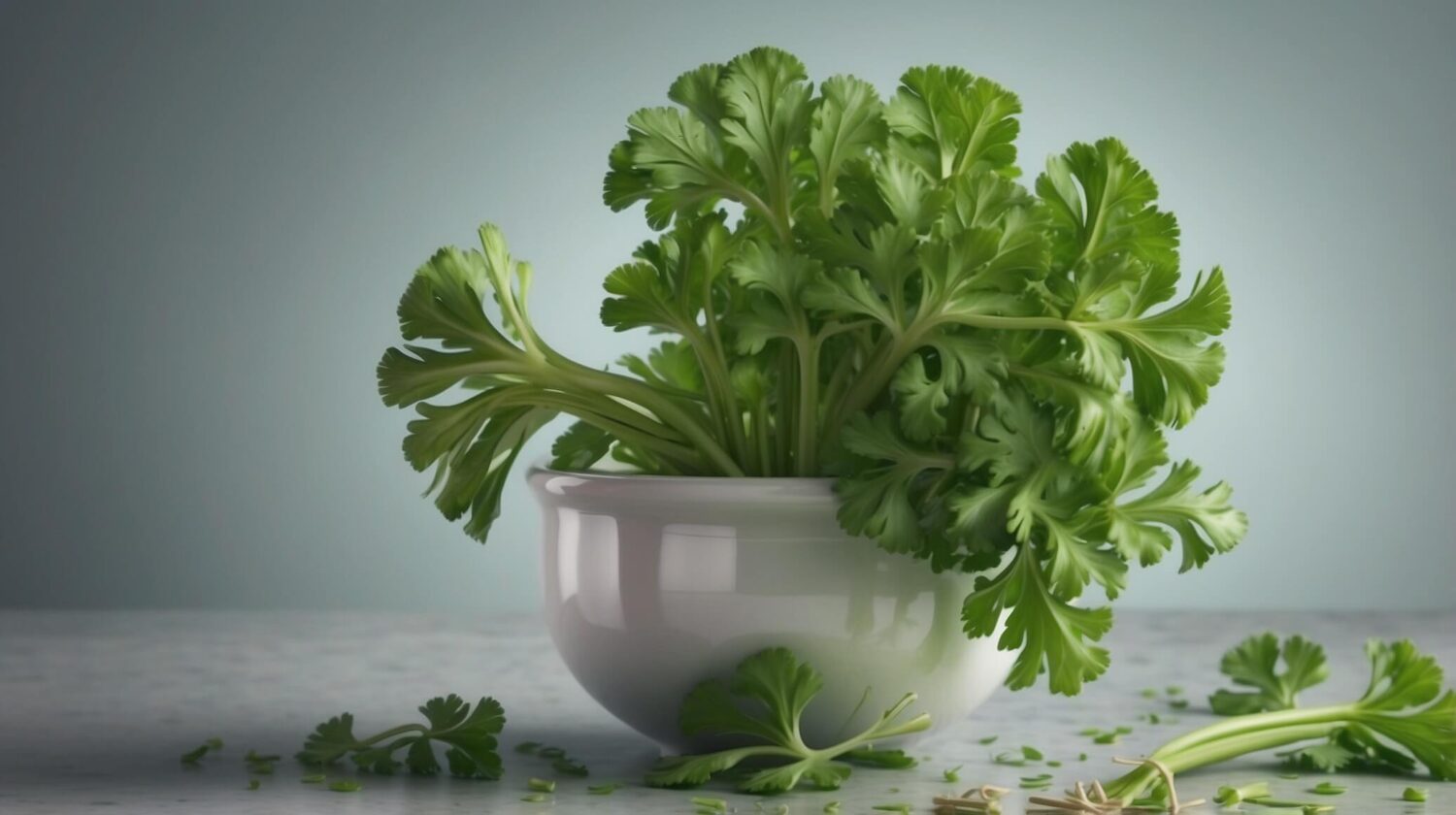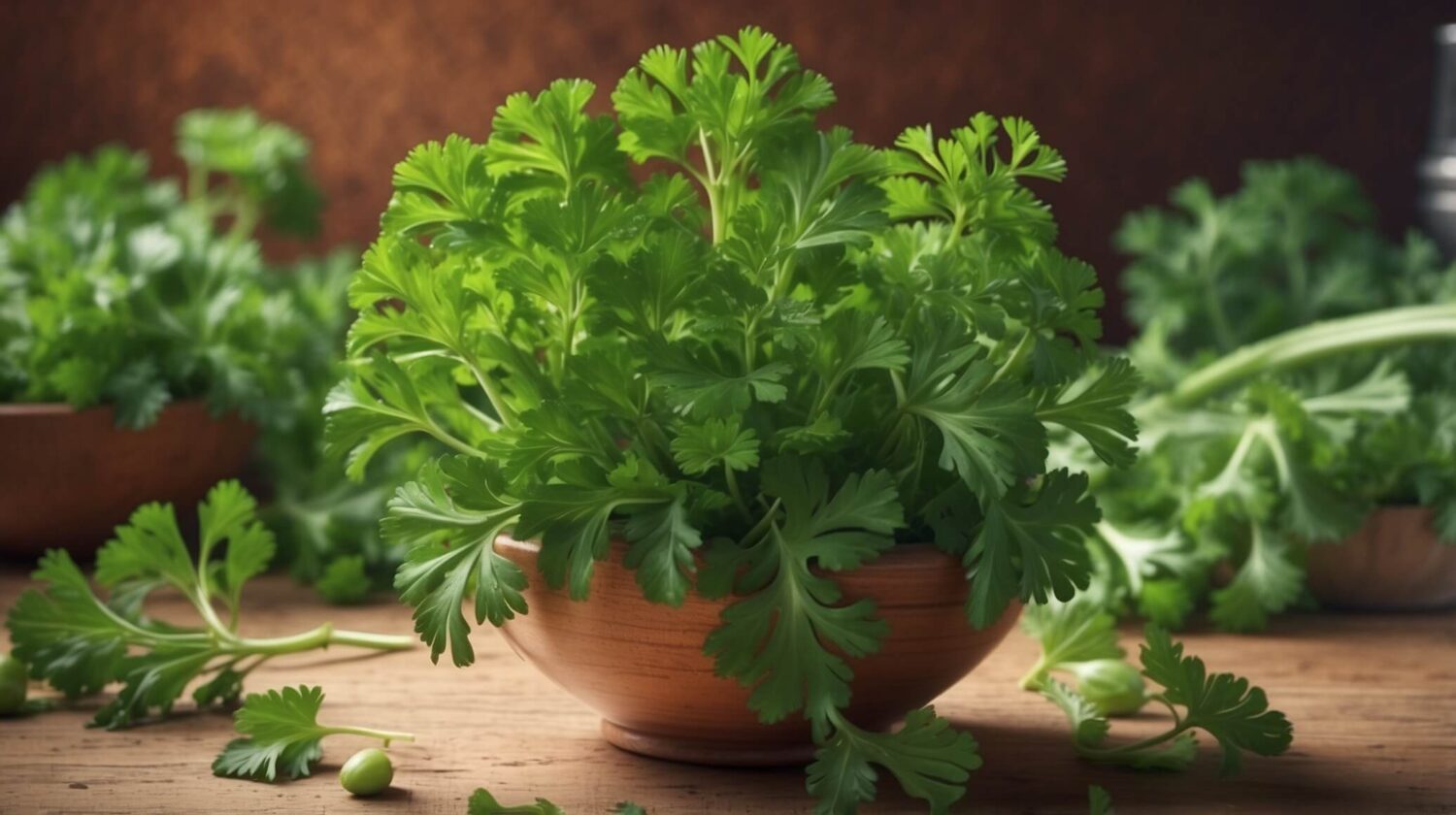When you think of parsley, do you see it merely as that green garnish on your plate? If so, you’re missing out! The amazing benefits of parsley go far beyond its aesthetic appeal. This clever little herb is packed with nutrients and health benefits that many of us aren’t aware of. Let’s explore the numerous **parsley benefits** and how it can enhance your overall health.
What is Parsley?
Parsley, scientifically known as Petroselinum crispum, is a flowering plant native to the Mediterranean region. It’s popular in kitchens around the world and is an essential ingredient in cuisines, ranging from Italian to Middle Eastern. You might recognize flat-leaf parsley, often used in cooking, and curly parsley, frequently employed as a garnish. But, let’s dive into why you should consider adding this herb to your diet.
Nutritional Value of Parsley
First things first, let’s talk about what makes parsley a powerhouse of nutrients. Just one cup of raw parsley contains an impressive amount of vitamins and minerals. According to the USDA, it provides:
– Vitamin K: 987% of the DV (Daily Value)
– Vitamin C: 133% of the DV
– Vitamin A: 101% of the DV
– Folate: 51% of the DV
– Iron: 12% of the DV
These vitamins and minerals play crucial roles in body functions. With these numbers, it’s easy to see why the **health benefits of parsley** are worth noting!

Vitamin K and Bone Health
One of the most notable **benefits of parsley** is its high vitamin K content. Vitamin K is essential for strong bones and can improve bone density. A study published in the Journal of Nutrition found that higher vitamin K intake is associated with better bone mineralization. With parsley being a rich source, adding it to your meals can help support your skeletal system.
Packed with Antioxidants
The **benefits of parsley** extend beyond vitamins. This herb is loaded with antioxidants, including flavonoids like apigenin and luteolin. These compounds combat oxidative stress caused by free radicals in the body. A study in the Journal of Agricultural and Food Chemistry highlighted that the consumption of parsley could play a role in reducing the risk of chronic diseases related to oxidative stress.
A Natural Diuretic
Did you know parsley has been used as a natural diuretic for centuries? This means it can help your body eliminate excess fluid. This could be particularly helpful if you’re experiencing water retention. Draining excess fluid can also alleviate pressure on your cardiovascular system. So whether you have mild swelling or just want to cleanse, think about parsley!
My Personal Experience with Parsley as a Diuretic
A while back, I experienced some uncomfortable bloating. A friend recommended that I start adding fresh parsley to my smoothies. At first, I was skeptical. But once I tried it, I noticed significant changes! Not only did I feel lighter, but my digestion improved too.

Detoxification Support
Parsley contains compounds that are beneficial for detoxification processes in the body. Chlorophyll, the component that gives parsley its vibrant green color, is known to help in detoxifying the liver. Studies have shown that chlorophyll can reduce the presence of toxins in the body and facilitate the removal of waste materials. Due to its detoxifying properties, incorporating parsley into your diet may support better liver health.
A Boost to Immune Function
Are you looking for a way to boost your immune system? Look no further than parsley! With its high vitamin C content, parsley aids in fighting off infections and viruses. According to a study published in the Journal of Medicinal Food, vitamin C is vital for optimal immune function. Regularly incorporating parsley in your meals can arm your body to deal with seasonal colds and flus!
Oral Health
You may be surprised to learn that one of the **benefits of parsley** includes promoting oral health. Yes, parsley can act as a natural breath freshener due to its antibacterial properties! Chewing on a sprig of parsley can help neutralize the bacteria that cause bad breath. Plus, its rich vitamin K content supports healthy gums, making it a wonderful addition to your dental care routine.
Why I Always Keep Parsley Handy
When I was gearing up for a big presentation, I was worried about my breath after lunch! I decided to keep a bunch of parsley on hand for just that reason. After a meal, I just chewed on a sprig, and honestly, it helped a lot. Plus, I knew I was adding a health boost to my day too!

Healthy Digestion
Rich in fiber, parsley plays a key role in improving your overall digestive health. Increasing fiber intake not only supports regular bowel movement but also helps prevent constipation and promote gut health. Additionally, parsley has traditionally been used to alleviate digestive issues such as bloating and gas, thanks to its carminative properties.
Natural Antimicrobial Properties
Another interesting aspect of parsley is its antimicrobial qualities. Research has shown that parsley essential oil demonstrated significant antibacterial activity against several pathogenic bacteria. Incorporating fresh parsley into your diet not only adds flavor but also provides a small yet effective boost in protecting against harmful bacteria.
Cardio Health
Several studies have pointed positively towards the cardio-protective properties of parsley. The herb contains compounds that can help lower blood pressure levels and maintain a healthy heart. The phytochemical contents can help reduce inflammation in blood vessels and promote better circulation. A balanced diet including parsley can be a simple yet effective way to boost your heart health.
Easy Ways to Incorporate Parsley into Your Diet
Now that you know the incredible **health benefits of parsley**, let’s discuss how to easily add it to your meals. Here are some simple ideas you can try:
1. Fresh Parsley in Salads
Tossing chopped fresh parsley into salads adds not only flavor but also a nutritional punch. Try mixing it with other greens or adding it to a grain-based salad like quinoa.
2. Parsley Smoothies
Trying a parsley smoothie is a quick way to incorporate this herb into your diet. Blend a handful of parsley with fruit, yogurt, and ice. You won’t even notice it’s there!
3. Homemade Sauces and Dressings
Consider sautéing parsley in olive oil or mixing it with vinegar for a homemade dressing. This way, you can enjoy the **benefits of parsley** without altering the flavor profile of your favorite dishes.
4. Garnish Like a Pro
Those sprigs of parsley that you thought were only for garnish? Use them! They can enhance the appearance and the nutrient content of dishes like soups or main courses.
5. Parsley Tea
Have you ever tried parsley tea? It’s quite simple to make. Just steep a few sprigs of parsley in boiling water, let it cool, and enjoy a refreshing herbal beverage.
Conclusion
In conclusion, the numerous **benefits of parsley** make it more than just a garnish. With its high nutritional value, wonderful health benefits, versatility, and ease of incorporation into meals, this herb deserves a central spot in your kitchen. Whether you’re looking for immune support, better digestion, or a natural diuretic, parsley can help. I encourage you to experiment with it in your cooking. You might just discover that it’s a game-changer in boosting your health and flavor!
So next time you’re at the store, grab a bunch of fresh parsley. Your body will thank you for it! By keeping it a staple in your meals, you not only enhance your dishes but also embrace a healthier lifestyle. Parsley is one underrated herb you should not overlook!
